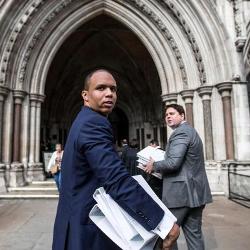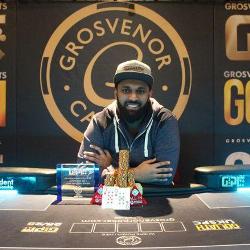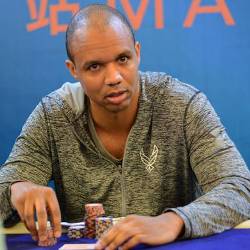Phil Ivey Loses UK Supreme Court Case versus Crockfords

Phil Ivey is not a gambler whose used to losing, and while in poker a player has to take the rough with the smooth, the 10-times WSOP bracelet winner and high-stakes cash game pro is not one for dwelling on his losses for long. His latest defeat to Genting Casinos in the UK Supreme Court, on the other hand, is likely to sting for some time to come.
Not only did Ivey forfeit the £7.7 million he won gambling at the Crockfords Club in London back in 2012, but the court declared that Ivey had cheated while winning the money, although it admitted that he had no dishonest intentions while doing so.
Edge-Sorting
In the summer of 2012, Ivey and a friend, Cheung Yin Sun, spent three nights at a casino in Mayfair, London playing high stakes punto banco for £50,000-£150,000 per hand . They subsequently ended up £500,000 in the red before increasing their stakes and asking for the same cards to be used for superstitious reasons. They also made some other requests of the dealer, including asking for the cards to be rotated, and by the time their punto banco sessions was over, they had amassed £7.7 million in profits.
While Crockfords returned their initial £1 million investment, the casino stated that it would wire the rest of the money later. Ivey was subsequently forced to hire attorneys and file a suit against Crockfords when the venue failed to honor its promise. Ultimately, Crockfords later accused the pair of edge sorting; which is when a player memorizes defects in the patterns on the back of cards and use the information to determine how much to bet on a hand. It’s not illegal, but it is discouraged.
Five Years Battle
The ensuing legal battle hinged on the UK Gambling Act of 2005, and in particular a section which questions whether cheating is permissible as long as one does not intend to be dishonest. As a professional gambler who prides himself on his integrity and honesty, Ivey wanted to clear his name so that he wasn’t associated with cheating allegations, while Crockfords, by contrast, wanted to make it clear that practices such as edge sorting were not allowed.
In 2014, the London High Court ruled against Ivey after asserting that edge sorting was not a legitimate way to win money at a casino. In 2016, justices at the Court of Appeal also ruled in favor of Crockfords, although it stated that the country’s Gambling Act provided for the possibility of someone cheating “without dishonesty or intention to deceive: depending on the circumstances”, and that this could be done by interfering with the process of a game. Ivey’s legal team, however, argued that “cheating” should in fact include an element of dishonesty, paving the way for a fight in the UK Supreme Court. After agreeing to take the case, proceedings subsequently began in July of 2017.
The Case is Closed
The five UK Supreme Court Justices issued its decision on October 25th, stating that the Court of Appeals ruling was to be upheld, and dismissing Ivey’s claim that intentional dishonesty was not necessarily cheating.
The judgement referred to a range of gambling laws dating all the way back to 1664, but was mostly concerned with the Gambling Act of 2005. Ultimately, the justices ruled that common ground of the legal proceedings between the two parties was a “contract for betting”, and that both parties entered into this contract on the implied belief that neither would cheat. According to the justices, Ivey had subsequently breached this contract.
The Supreme Court further ruled that the conclusion reached by the original judge that Ivey had cheated was unassailable. They said that punto banco is entirely a game of chance, and that the cards are dealt at random without the house or punter knowing what each card was. In other words, Ivey had planned and executed a carefully planned sting. The final point the judges related to the issue of dishonesty, concluding that the claim Ivey made about his behavior being honest was, itself, a dishonesty.
“For the same reasons which show that Mr. Ivey’s conduct was, contrary to his own opinion, cheating, the better view would be, if the question arose, that his conduct was, contrary to his own opinion, also dishonest,” explained the judgement.
Crockfords Vindicated
The attorney for Crockfords spoke to the press after the case was closed, saying that it was one of the most significant criminal law decisions in a generation. As he explained, the concept of dishonesty is, after all, a key part of many offenses, in particular fraud.
In the meantime, if Ivey was sincere that protecting his reputation was more important than receiving his winnings, it makes the Supreme Court’s decision even more biting for him given that the judges said his actions constituted a sting, and that his conduct was in fact dishonest.










